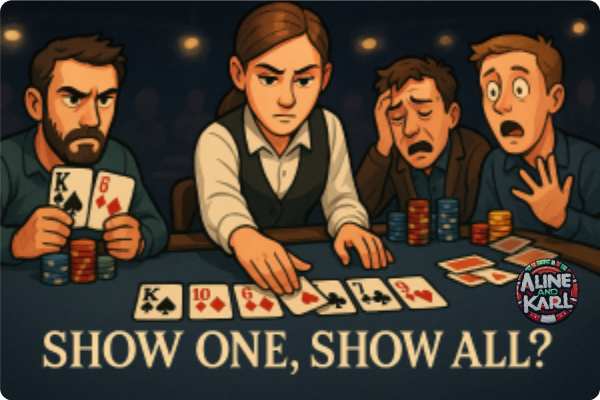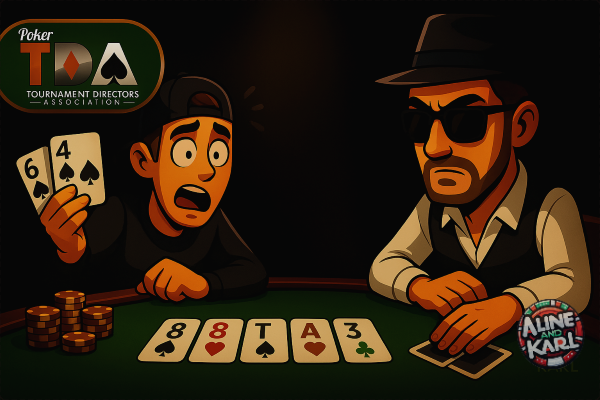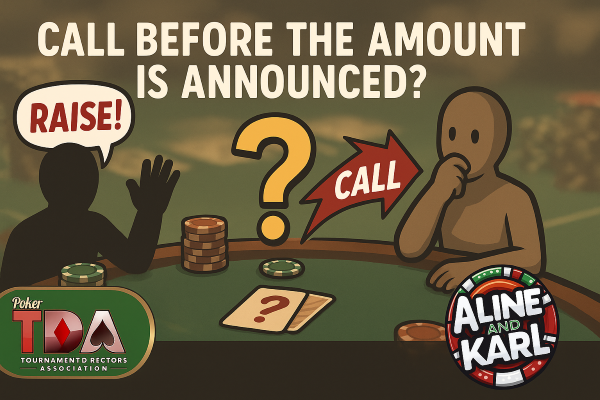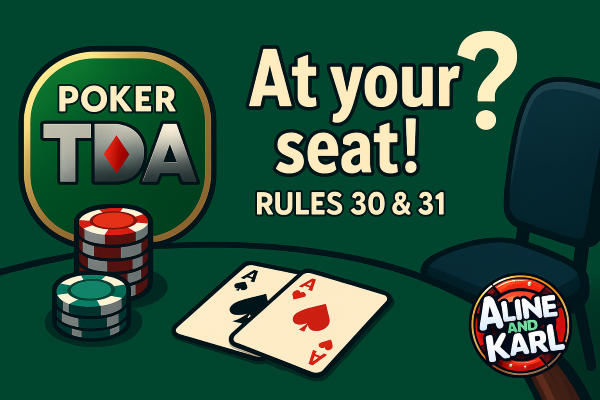🎲 When a Straight is Folded Too Soon: A Showdown Arbitration Dilemma
The world of tournament poker is governed by precise rules, yet some situations force arbiters to navigate between written regulation, game integrity, and common sense. Here's a striking example from an EPT event that sparked real debate among experienced European floors.
📌 The Case: A Mistakenly Folded Straight
On the river, in a sizable pot:
- Player A bets 60% of the pot
- Player B tanks for a while, then calls
- Player B shows his hand: two pair
- Player A, believing he is beaten, shows his cards to a neighbor and mucks them face down
- The dealer retrieves and reveals the cards, uncovering… a winning straight!
👉 The pot is awarded to Player A.
But is this decision consistent with TDA rules? And more importantly, is it fair?
⚖️ Rule vs. Fairness: A Fundamental Conflict
Several TDA rules are in play here:
✅ Rule 12: Cards Speak
The fundamental rule of poker: it's not what you say, but what you show that determines the winner.
✅ Rule 14: Face-down cards are not automatically dead
If the cards are still 100% identifiable, they may be retrieved and placed face-up, and are considered live.
✅ Rule 18B: The caller's right to see the hand
A player who calls a river bet has an inalienable right to see the bettor's hand. But only if they request it.
❗ The Ambiguity: Player B Never Asked
This is where the situation becomes tricky:
- The dealer turns over the cards on their own initiative
- But no player requested to see Player A's hand
- The dealer thus oversteps their neutral role, which is not authorized under TDA rules
🧭 Two Possible Interpretations
1. Strict Rule-Based Reading
- Player A mucks his hand
- Player B makes no request
- No hand is tabled = hand is dead
- The pot goes to Player B
2. Rule 1 Application (Best interest and fairness)
- Player A's hand is clearly the winner
- It is identifiable
- The dealer or another player corrects a reading mistake
- The pot goes to Player A
💬 Conclusion: A Teaching Case for Floors and Dealers
This case highlights a grey area in the application of TDA rules:
👉 Can a non-tabled hand still be live if it's turned over without a request? 👉 Should the dealer remain strictly neutral, or act in the interest of game integrity?
There's no universal answer—and perhaps that's the main lesson: Even in a well-regulated environment, tournament poker remains a human game, where the Floor's judgement, experience, and reading of context often become the deciding factor.
💡 This case may also prompt reflection, especially among those who train or support dealers and tournament staff:
- How should the "show one, show all" principle be handled when a hand might still be live?
- Should dealers be trained to retain identifiable cards and call the Floor?
- Or to always wait for an explicit request from the caller?
Rather than bringing definitive answers, this case invites us to ask better questions, and helps us collectively refine our understanding of the game—and its sometimes delicate rulings.




